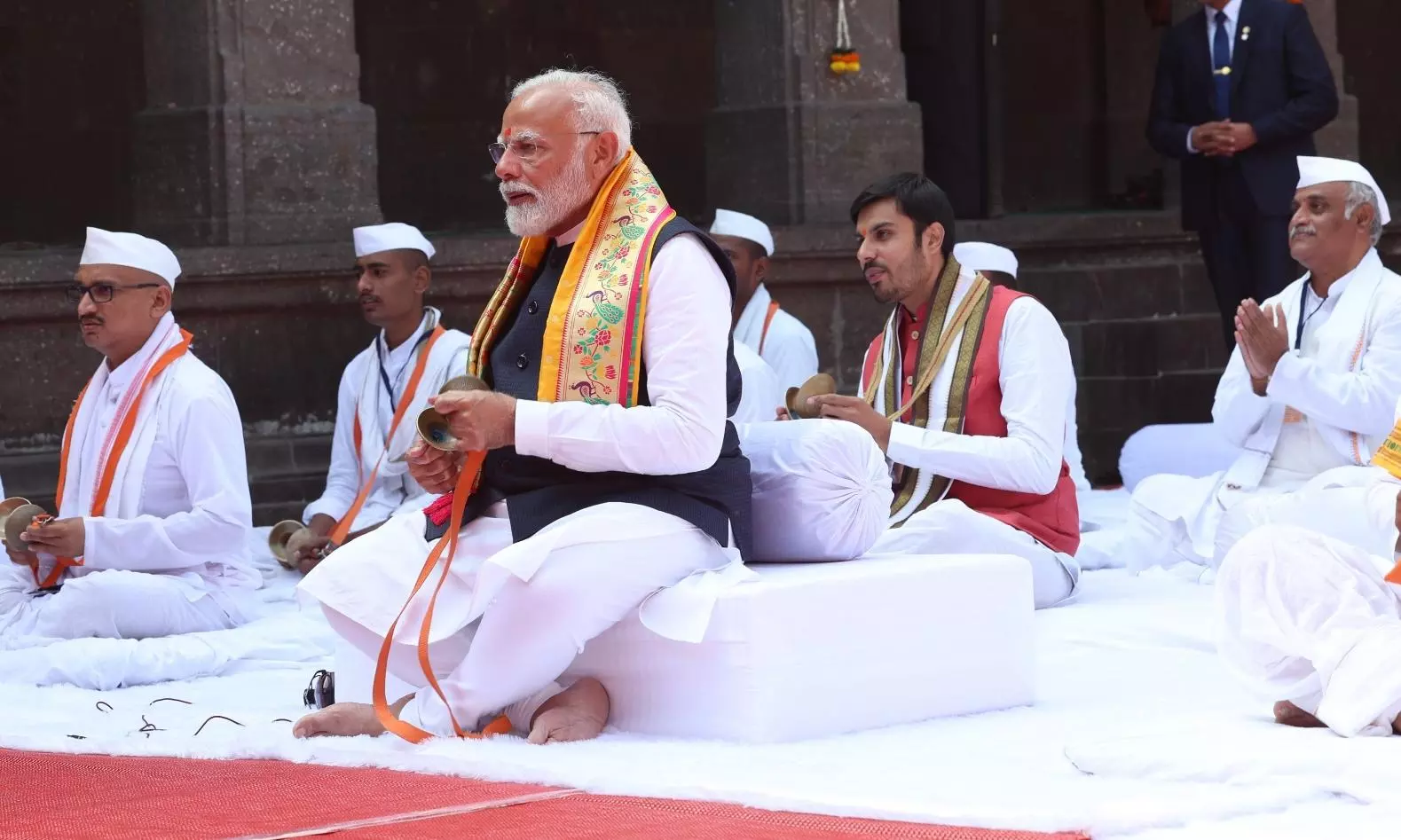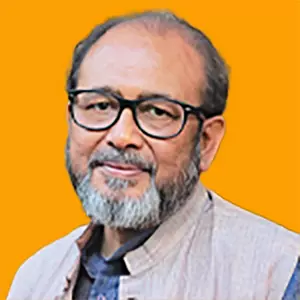
- Home
- India
- World
- Premium
- THE FEDERAL SPECIAL
- Analysis
- States
- Perspective
- Videos
- Sports
- Education
- Entertainment
- Elections
- Features
- Health
- Business
- Series
- In memoriam: Sheikh Mujibur Rahman
- Bishnoi's Men
- NEET TANGLE
- Economy Series
- Earth Day
- Kashmir’s Frozen Turbulence
- India@75
- The legend of Ramjanmabhoomi
- Liberalisation@30
- How to tame a dragon
- Celebrating biodiversity
- Farm Matters
- 50 days of solitude
- Bringing Migrants Home
- Budget 2020
- Jharkhand Votes
- The Federal Investigates
- The Federal Impact
- Vanishing Sand
- Gandhi @ 150
- Andhra Today
- Field report
- Operation Gulmarg
- Pandemic @1 Mn in India
- The Federal Year-End
- The Zero Year
- Science
- Brand studio
- Newsletter
- Elections 2024
- Events
- Home
- IndiaIndia
- World
- Analysis
- StatesStates
- PerspectivePerspective
- VideosVideos
- Sports
- Education
- Entertainment
- ElectionsElections
- Features
- Health
- BusinessBusiness
- Premium
- Loading...
Premium - Events

No Opposition party did any 'forward-planning', essential in politics; the lack of prior preparations enables BJP to solidify its support among Hindus
Virtually the entire galaxy of Opposition parties, including the Congress, failed to be ready with a response to invitations to the 'Pran Prathishta' ritual and formal inauguration of the Ram Temple in Ayodhya.
It is not that the ceremony was suddenly scheduled and the temple trust went out of the way by inviting these parties. By displaying symptoms of confusion and indecision for days, they handed a major political victory to the BJP.
The party and its affiliates within the Sangh Parivar will again campaign among their supporters that the Opposition is anti-Hindu and pro-minorities (read Muslims).
Not autonomous
The Ram Temple Trust does not function like an autonomous organisation. Instead, it works in close coordination with government agencies as well as the affiliates of the Rashtriya Swayamsevak Sangh (RSS). The decision on whom to invite or not would have been taken after due clearance from the highest levels.
So, why did almost every Opposition party, led by the Congress, take so long to decide?
Only the political ignoramus would not have known that come what may, Prime Minister Narendra Modi would get the temple constructed before the Lok Sabha elections.
Hindutva remained his go-to issue all through the past decade and also, in his chief ministerial years. In his assessment, constructing the Ram temple and making headway in securing control of the disputed Islamic places of worship in Varanasi and Mathura would boost his electoral prospects.
It must be recalled that the Supreme Court delivered its verdict on the Ayodhya case on November 9, 2019, disconcertingly the 13th anniversary of the Shilanyas ceremony in Ayodhya.
Planning for temple
Three months later, the government established the Shri Ram Janmabhoomi Teerth Kshetra Trust on February 5. By the end of the month, it was structured and office bearers took charge.
Nripendra Mishra, former IAS officer and principal secretary to Modi from June 2014 to August 2019, was then heading the Nehru Memorial Museum and Library for recasting it as the Prime Minister's Museum. He was appointed as chairman of the trust's temple construction committee.
Undoubtedly, he was appointed to ensure that Modi remained personally aware of progress and make suggestions. In a media interaction recently, Mishra disclosed that Modi shared his vision of the temple after his appointment. Clearly, the 'brief' came directly from the top.
Modi's glory
But before construction could begin, lockdown was imposed in India and uncertainty loomed large. However, within a few weeks, ground-leveling work was started. By June, when COVID was rampant, plans were drawn up for Modi to perform the Bhoomi Pujan.
The decision to hold the ceremony on August 5, the first anniversary of the abrogation of Article 370, underscored the decision to conjoin a purely religious matter with the Modi government's political thrust.
The event was planned to ensure that the Prime Minister walked away with all the kudos. It was not previously disclosed that he would personally perform rituals with others merely paying obeisance or marking presence.
Blurring of lines
The ceremony also marked the complete disappearance of the line of separation between religion and the state as also blurring remaining lines between the RSS and state power. Mohan Bhagwat was among other BJP bigwigs, Uttar Pradesh Governor Anandiben Patel and Chief Minister Yogi Adityanath.
Significantly, Coronavirus was rampant at the time of Bhoomi Pujan. The total number of infections in India was close to 20 lakhs, the daily count was almost 45,000, nearly 10 times that number, 4.5 lakh people, had already died in India and daily count of deaths, though declining, was still in the range of 600.
Give this backdrop, it evident that the temple would be 'ready' before the polls. The delayed response of every party, even the Trinamool Congress, which besides staying away at least laid out an alternative plan, has been stupefying to say the least.
No planning
Clearly, no Opposition party did any 'forward-planning', essential in politics. The lack of prior preparations enables the BJP to solidify its support among Hindus. Furthermore, it is an opportunity to vilify Opposition parties by depicting them as Muslim appeasers.
Their delayed response mirrors ideological confusion among the opposition, especially the Congress, on whether to back Hindutva programmes or not. This was evident from the Ram Temple movement's early days in the 1980s.
Pursuing soft-Hindutva has not helped the Congress regain support although during the Bharat Jodo Yatra and its aftermath, it pursued a firm contrary line. This was abandoned during the recent Assembly elections with disastrous consequences.
Hindus, Hindutva
The majority of Hindus do not endorse the Hindutva ideology. It is just that this group is the proverbial 'silent majority'. Such people do not aggressively counter activists of the saffron fold on a daily basis.
The TMC has taken the right call by deciding to hold an interfaith (Sarba Dharma) rally in Kolkata and across West Bengal on January 22.
Opposition parties failed so far to remind people that Mahatma Gandhi, after leading the freedom struggle for long, stayed away from Delhi and official celebrations when India attained independence. The Congress included, all Opposition parties must comprehend that the best part of people remains secular in social and ethical behavior. This is true for those who voted for the BJP in the past. Studies show that not everyone voting for the BJP is a Hindutva supporter.
Think, plan ahead
Adversaries of the BJP must keep looking at the road map ahead and envisage it is planning in the period ahead. This strategy must be backed by ideological clarity and confidence.
Only in such a scenario, can they be ready with counter moves. A credible challenge to the BJP cannot be posed by the Opposition parties if they fail in projecting themselves as self-assured brigades. Only if they demonstrate of being in with a chance can opposition parties, preferably after sharing seats, succeed in wresting support from the BJP.
(The Federal seeks to present views and opinions from all sides of the spectrum. The information, ideas or opinions in the articles are of the author and do not necessarily reflect the views of The Federal.)


